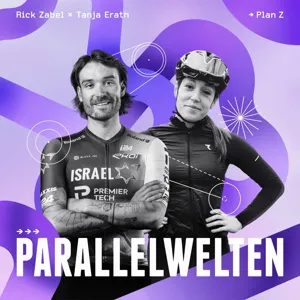"Momentlichkeit, Festkleben und Lebensfilm oder: Jeder Moment ist eine Leihgabe"

Explore "leiden" with insightful episodes like ""Momentlichkeit, Festkleben und Lebensfilm oder: Jeder Moment ist eine Leihgabe"", "Hoe jongeren denken over hun opvoeding", "Der 1.Petrusbrief", "#75 Bonjour Le Tour 3" and "#67 Die Leiden des jungen Batzke" from podcasts like ""Couch-Gespräche", "Wetenschap Vandaag | BNR", "bibel.plus", "Plan Z" and "Lehrersprechtag"" and more!


Mede mogelijk gemaakt door: Broadwick
In de podcast hoor je promovendus Loes Janssen. De studie vind je hier. Wil je meewerken aan RE-PAIR waar dit onderzoek onderdeel van is? Je kunt hier zien of je in aanmerking komt en je vervolgens ook daar aanmelden.
See omnystudio.com/listener for privacy information.














In dieser Folge möchte ich darüber berichten, weshalb es keinen Sinn ergibt auf dem Heilungsweg bei Trauma nach Abkürzungen zu suchen. Ich möchte dir etwas darüber erzählen, warum es sich so lohnt, den Weg ganz zu gehen, mit jedem Schritt, der dazugehört. Ich werde erklären, warum Abkürzungen häufig eher Sackgassen sind und weshalb es auch nicht achtsam und nicht unsere Natur wertschätzend ist, wenn wir es mit schnellen Lösungen versuchen. Ich wünsche dir viel Freude und wertvolle Inspiration beim Lauschen.
Leidensdruck und der Wunsch nach Entlastung
Wenn man sich auf einem Heilungsweg befindet, dann gibt es etwas, was heilen muss. Dann ist etwas versehrt, etwas ist verletzt, etwas erzeugt Schmerz, Kummer, Leid, Symptome. Das heißt, wenn man auf einem solchen Weg ist, hat man in aller Regel einen Leidensdruck. Wenn Menschen zu mir in die Praxis kommen, haben sie meistens diesen sogenannten Leidensdruck. Das Leid, das sie erleben, hat ein solches Maß erreicht, dass sie sich in Bewegung setzen, in dem tiefen Wunsch es zu verändern. Dieser Leidensdruck führt zu dem Wunsch nach Lösungen und, wie eben gesagt, nach Veränderung. Manchmal auch zu dem Wunsch nach Erlösung oder einfach nach Entlastung. Es ist total nachvollziehbar, dass auf einem solchen Weg, der meistens schon eine Weile geht, die Geduld irgendwie nicht gerade unerschöpflich ist…




Du möchtest deinen Podcast auch kostenlos hosten und damit Geld verdienen?
Dann schaue auf www.kostenlos-hosten.de und informiere dich.
Dort erhältst du alle Informationen zu unseren kostenlosen Podcast-Hosting-Angeboten. kostenlos-hosten.de ist ein Produkt der Podcastbude.
Gern unterstützen wir dich bei deiner Podcast-Produktion.
Stay up to date
For any inquiries, please email us at hello@podcastworld.io